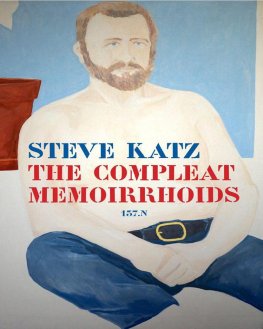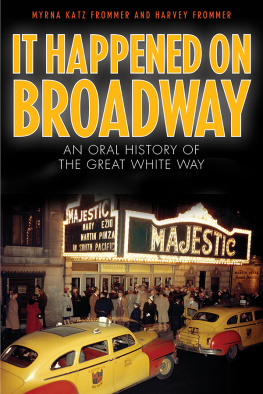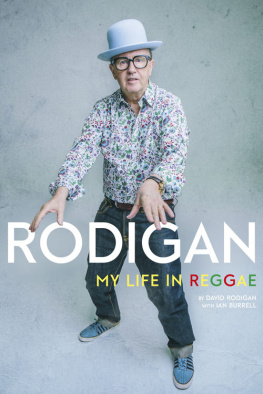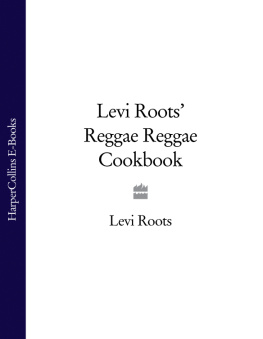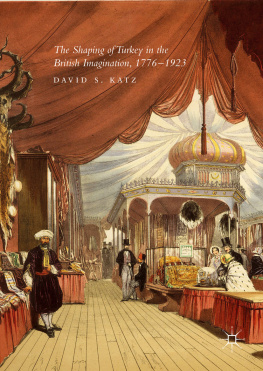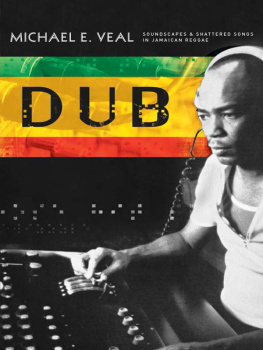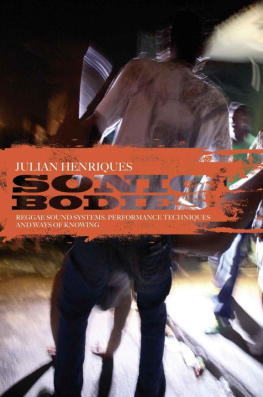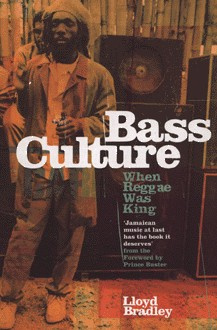People Funny Boy: The Genius of Lee Scratch Perry (Canongate Books 2000)
A Tapestry of Jamaica (as contributor) (Macmillan Caribbean 2002)
The Rough Guide to Reggae (as contributor) (Rough Guides 1997)
Solid Foundation
An Oral History of Reggae
David Katz
BLOOMSBURY
First published in Great Britain 2003
Copyright 2003 by David Katz
This electronic edition published 2010 by Bloomsbury Publishing Plc
The right of David Katz to be identified as the author of this work has been asserted by him in accordance with the Copyright, Designs and Patents Act 1988
All rights reserved. You may not copy, distribute, transmit, reproduce or otherwise make available this publication (or any part of it) in any form, or by any means (including without limitation electronic, digital, optical, mechanical, photocopying, printing, recording or otherwise), without the prior written permission of the publisher. Any person who does any unauthorised act in relation to this publication may be liable to criminal prosecution and civil claims for damages.
Bloomsbury Publishing Plc, 36 Soho Square, London W1D 3QY
A CIP catalogue record for this book is available from the British Library
ISBN 978 1 4088 2073 5
www.bloomsbury.com/davidkatz
Visit www.bloomsbury.com to find out more about our authors and their books.
You will find extracts, authors interviews, author events and you can sign up for newsletters to be the first to hear about our latest releases and special offers.
Contents
I would like to thank wholeheartedly all those who consented to be interviewed; their honest recollections and poetic utterances relate the story of reggaes solid foundation. I would also like to thank all the fellow journalists, photographers, friends, family members and other colleagues who assisted with this book; your contributions are greatly appreciated. A select few deserve special mention for helping me track down key individuals: in Jamaica, Max Romeo, Winston Jarrett, Gilmour Grant of the Silvertones, plus Bertram Brown, Donovan Joseph and Delroy Issachar Bailey of Freedom Sounds; in New York, Clive Chin of Impact/ Above Rock and Ras Kush of the Black Redemption sound system. Lee Scratch Perry also receives my unwavering gratitude for initiating the quest for knowledge by insisting I be his ghost writer in 1987. For providing me with relevant material and contacts I would like to thank record industry personnel including: Chris Wilson and Joshua Blood at Heartbeat, Steve Barrow, Bob Harding and Dominic at Blood And Fire, Ira Heaps at Jammyland, Dana Smart at Hip-O, James Dutton and Mike Coe at Motion, Trevor Wyatt formerly at Island, Gerry Lyeseight at Palm, Doctor Alimantado at Keyman, Roy Cousins at Tamoki Wambesi, Alvin Ranglin at GG, Linval Thompson at Thompson Sounds, Mikey Dread of Dread At The Controls (for more information visit www.mikeydread.com), Neil Fraser and Holly at Ariwa, Geachey at Rockers International, Linton Kwesi Johnson and Sharmilla Beezmohun at LKJ, Sharon Scott, Peady and all at Greensleeves, Joy Ellington at VP London, Sarah Watson at Virgin, Hugh Francis at Jet Star, Aaron Yarborough at Roots Foundation, Michael Goldwasser and Eric Smith at Easy Star, Ray Hurford at Muzik Tree and Ossi Sillman, Seija and the late Tero Kaski at Black Star, Colin Moore and Junior Delgado at Incredible Music, John Mason and Kenn Jones at Reggae Retro/Trybute, Manwell Tabone at Maltas Reggae Club, Ethan Reid and Angela Scott at Soul Jazz, Henk Targowski at Anachron, Guillaume Bougard at Tabou 1, Jeremy Collingwood and Bruno Blum at JAD, Tony Rounce at Westside, Laurence Cane-Honeysett and John Reed at Trojan/Sanctuary, Bibi Seaton at Sprint, Mitch Grayson at Graylands, Andre Jackson at Koptic Voice, Eric Jones at Ejahness Reggae Comprehensive, Gaylene Martin at the Coalition, Steve Barker at Big Cigar, Mark Gorney at Worldisc, Jaime Nack at One Drop Productions, Roger Steffens, CC Smith, Chuck Foster, Michael Turner and all at the Beat, Thibault Ehrengardt at Natty Dread, James Dillon at Amoeba, Andrew Rush at Recycled, Dave Rosencrans at the Experience Music Project, discographer Richard Noblett and all at Interstate Music, Debbie Ballard at Absolute PR and Dorothy Howe. Tenzing Sonam and Ritu Sarin assisted with Indian surnames, Dave Hallworth helped make an important editorial connection, and Chris Menist commented on an early draft of Chapter One. Natty Seven of Sunshine Cars in Kingston also deserves a huge big-up for being the most patient and reliable taxi driver I have ever encountered. Finally, I thank my partner, Claudia Bernard, for her love and continual support.
Reggae has risen, against the odds, to wield a tremendous influence on contemporary popular culture. Despite being initially dismissed even in its land of origin, reggaes liberating message has inspired a broad spectrum of humanity in global superpowers and developing nations alike: freedom fighters, dissidents, dignitaries and above all, ordinary people have rocked to its beat on every continent. Its distinct musical elements increasingly permeate other popular forms: for instance, the dub techniques of Jamaicas pioneering engineers have become the bedrock of modern dance remixes, and sub-genres such as ska, roots and dancehall are the basis of prevalent hybrids abroad. Perhaps most notably, the innovations of Jamaican toasters helped spawn the earliest versions of rap and hip-hop culture, and vibrant cross-fertilization of those forms continues. Though detractors may seek to demean reggaes status, it is evident that it remains a music of great importance; that such an internationally noteworthy innovation has been fostered by the ghetto folk of a small island, born with little more than natural creativity and musical sensibility at their disposal, makes reggaes unlikely rise all the more incredible.
My main motive in writing this book was to allow the men and women, who built the solid foundation upon which the house of reggae music rests, to state their views about its progression and the roles that they played in its formation. Rather than providing a slanted, outsiders view that claims to be a definitive history, this book lets the pioneers of Jamaican popular music use their own voices to tell its tale. And I hoped to answer questions. Who exactly created this remarkable music? Where did these people come from, and how did they become the singers and players, the engineers and producers, the sound system operators and entrepreneurs who fashioned a distinctly Jamaican music? Why did the music take the shape it did, and how did it come to wield such a significant influence an influence that is sometimes downplayed or glossed over? What were the singers and players trying to express? How do they now feel about the music they created and the chain of events that brought it to the outside world?
I chose an oral history in the hope of presenting as honest and genuine a portrait of the music as possible; first-hand testimony seemed the best way to get there. An oral history also seems to capture the spontaneous circumstances of much reggae invention, and allows the wit and wisdom of its propagators to be better represented. The cadence of Jamaicas spoken patois lends itself more readily to this form than to the dry monotone of a foreign observer seeking to relate events never witnessed and possibly misunderstood. As the people in this book all played important roles in reggaes complex history, they are surely the ones whose voices must be guiding it. Readers will notice that conflicting accounts appear from time to time, notably when the songs in question concern a major shift in style or were particularly popular hits; I have stringently checked conflicting assertions in the hope of presenting information that is as near to accurate as possible.
Next page

